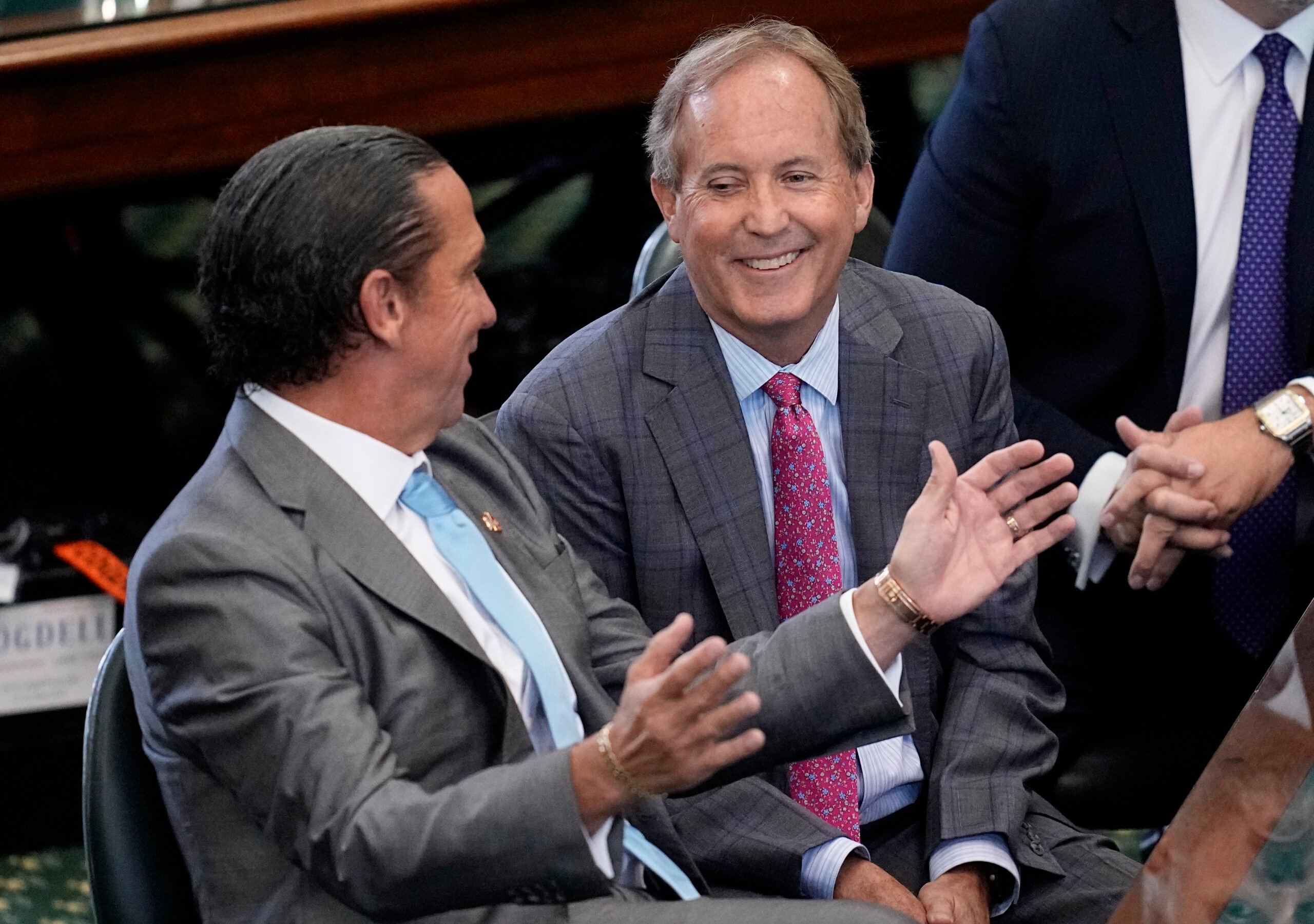
David Dewhurst and Dan Branch Shouldn’t Concede
Dan Patrick and Ken Paxton are hoping their runoff opponents will fly a white flag—but it would be a bad thing for Texans.

Above: Lt. Gov. David Dewhurst
After last week’s primary, Texas now faces a grueling two-and-a-half months of runoff election campaigns. Every candidate who won less than 50 percent of the vote last Tuesday has to square off with the second-place finisher for a May 27 runoff. They’d prefer not to do this, of course. Runoffs take time and money that could be spent preparing for the general election (or measuring drapes for your new office at the Capitol.) So up and down the ballot, first-place finishers are trying to shame their opponents into giving up and conceding before the runoff campaign even starts.
One candidate, comptroller hopeful Harvey Hilderbran, has already withdrawn, but that was a special circumstance. His opponent, Glenn Hegar, won 49.99 percent of the vote, and the runoff appeared a formality. But Dan Patrick, who won 41.4 percent of the primary vote to David Dewhurst’s 28.3 percent, is also trying to sumo-slam his challenger into conceding. Allen Blakemore, Patrick’s campaign manager, told reporters recently that “the position for Mr. Dewhurst is rather hopeless.”
Ken Paxton, who won 44.4 percent of the vote to Dan Branch’s 33.4 percent, is also trying to muscle out his opponent. Yesterday, fourteen state representatives signed a letter asking Branch to drop out for “party unity.” The same thing is happening in downballot primary races like the one in Senate District 10, where tea partier Konni Burton, who won 43.2 percent of the vote, faces Mark Shelton, who won 35.1 percent.
Dewhurst, Branch and Shelton are all unlikely to win their runoffs. But it would be deeply unfortunate for Texas voters if they just conceded—and it would be unnecessarily fatalistic from the perspective of plain political calculus.
For years, blogger Matthew Yglesias had a simple rule for politicians who get caught up in scandals: don’t resign. If you’re a politician who gets caught with your hand in the proverbial cookie jar, persevere through the darkest news cycles—when even your own party just want you to disappear—and there’s a good chance you’ll end up no worse than even.
Take the twin cases of Louisiana Senator David Vitter and former New York Governor Eliot Spitzer, said Yglesias. Spitzer resigned after his passion for galavanting with high-price escorts surfaced, and remains a laughingstock, with New York Post reporters stalking his girlfriend. Vitter, a major client of the so-called D.C. Madam, rode out the largest capital prostitution scandal in memory. As Washington whispered about his uncommon fetishes, he struck a pose of repentance. Three years later, he cruised to his reelection, and four years after that, he’s now the favorite to become governor of Louisiana.
The point: Politics may be the art of the possible, but it can also be about playing long odds. Those who hang tough are occasionally rewarded. The most important thing is to stay in the game and keep moving forward. That’s the strategy being practiced by both Rick Perry and Chris Christie right now. Let’s suggest a corollary to Yglesias’ rule: don’t concede, and don’t ever, ever give up. Just ask Ted Cruz.
That’s not to say that Dan Branch or David Dewhurst is Ted Cruz, of course. Frankly, like Blakemore, I don’t currently see a way for Dewhurst to win either. But two-and-a-half months is an eternity in politics. Who knows what will happen? Think, also, about the dynamic in the lieutenant governor’s race: Patrick has relentlessly attacked Dewhurst for months, but Patrick was somewhat protected—at least until the end—by the four-way race that preceded election day. Now Dewhurst has only Patrick to fight, and I wouldn’t be surprised if they’ve kept some powder dry. Patrick has a long and somewhat unusual history outside politics. Let’s see what comes up. The same goes for Paxton and Branch—there’s no telling what will develop.
The other thing conceding would do is deprive Texans of a voice. Patrick won primary night with 41.4 percent—is that what passes for a mandate? I see nothing wrong with making sure that a majority of the state Republican Party wants Dan Patrick, who would be the most right-wing lt. governor the state has ever had, as their nominee—even if the answer is “yes” and the outcome is preordained.
On his recent call with reporters, Blakemore argued that the 30 percent of voters who voted for Staples and Patterson had already chosen not to vote for Dewhurst—making them likely Patrick supporters. But looked at another way, that 30 percent made the decision not to vote for Dewhurst’s front-running challenger, Patrick.
Here’s the other thing: We don’t know enough about this election year to know if Democrat Leticia Van de Putte’s campaign will be competitive in November. But, hypothetically, if it isn’t, the May runoff will be the last chance for Texans have a hand in picking the lt. governor. In the attorney general race, where Democrats have a spectacularly-named but improbable candidate named Sam Houston, the race between Ken Paxton and Dan Branch could be the last meaningful say Texans have, too—albeit, a very small number of them. Why deprive them of that?


